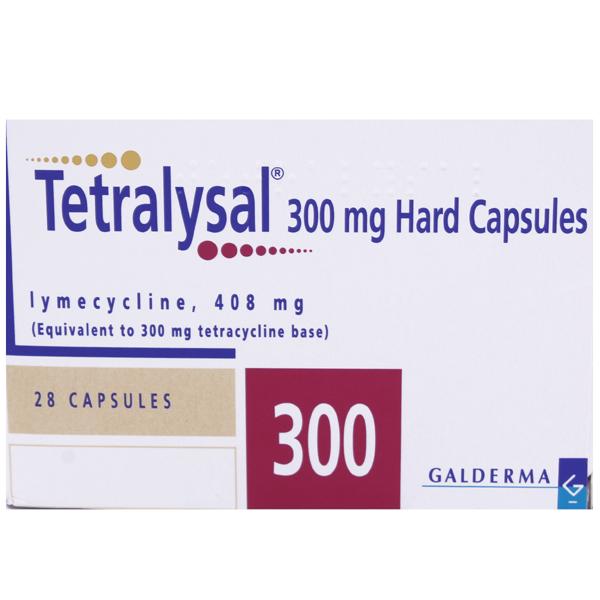Do not take Tetralysal if:
you are pregnant, planning to become pregnant or are breast-feeding
you have ever had an allergic reaction to Lymecycline, the active ingredient in this medicine or to other tetracycline antibiotics such as Doxycycline or to any of the other
ingredients of Tetralysal. An allergic reaction may include either a rash or itching
you have ever had kidney disease
Tell your doctor before taking Tetralysal if you
have ever had a liver problems suffer from systemic lupus erythematosus (an allergic condition that causes joint pain, skin rashes or fever) or Myasthenia Gravis (a disease that weakens the muscles) .
Tell your doctor if you are taking any of the following medicines:
medicines to thin your blood e.g. warfarin
diuretics (used to treat kidney disease, heart disease or high blood pressure)
other medicines to treat acne.
Do not take the following medicines at the same time as your Tetralysal as these could affect how well your acne medicine works. Wait at least two hours after taking
Tetralysal before you take these types of products.
indigestion remedies
ulcer healing drugs
quinapril (for high blood pressure)
supplements containing calcium, aluminium, magnesium, zinc or iron.
If you take a contraceptive pill, it may not work properly while you are taking Tetralysal, especially if you have sickness or diarrhoea for any reason. An additional ?barrier?
method of contraception (e.g a condom) should be used to make sure you don?t get pregnant. Please read the leaflet that you got with your ?pill? or talk to your doctor or
pharmacist if you are not sure what to do or how long to take these precautions for.
Please tell your doctor or pharmacist if you are taking or have recently taken any other medicines, including medicines obtained without a prescription.
Tetralysal must not be taken if you are pregnant or breast feeding.
Tetralysal is not known to affect the ability to drive or use machines.
Like all medicines, Tetralysal can cause side effects, although not everybody gets them.
Tetralysal may cause the following side effects.
Common side effects (occur in less than 1 in 10 patients)
nausea (feeling sick), abdominal pain, diarrhoea, headache.
Unknown frequency of occurrence (frequency cannot be estimated from the available data), allergic (hypersensitivity) reaction causing swelling of the eyes, lips or tongue, blistering or peeling of large areas of the skin, ulcerations or lesions on the mouth, lips, genital or anal regions, disturbances of eyesight, dizziness, vomiting (being sick), yellowing of the skin or eyes (jaundice), increased sensitivity of the skin to sunlight, increased pressure in the brain, changes in the number or type of certain blood cells, pain in the upper part of the abdomen, changes in some blood tests (tests of liver function), fever, itchiness, skin rash or hives, inflammation of the intestine.
The following side effects may occur during treatment with the class of medicines to which Tetralysal belongs (the tetracyclines): inflammation or ulceration of the gullet, causing pain or difficulty swallowing or painful heartburn, difficulty in swallowing, inflammation of the pancreas, liver damage, teeth discolouration, inflammation or soreness of the tongue, mouth, cheeks, gums or lips, soreness or itching of the genital area, yeast infection around the anus or genitals, infection of the colon, permanent visual loss.
Tell your doctor immediately if you develop side effects such as swollen face, lips, tongue and throat, difficulty in breathing, hives, blistering or peeling of large areas of
skin, ulcerations or lesions on the mouth, lips, genital or anal regions, severe or persistent headaches or visual disturbances.
If any of the side effects become serious, or if you notice any side effects not listed in the leaflet, talk to your doctor or pharmacist.

 Prescription
Prescription